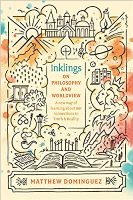
These are people, practices, Bibles/Bible apps, and language related to Contemplative teachings listed here due to the increasing influence of the Contemplative Movement. Problems with this movement are multiple and […]

So far, no biblical passage cited as support for these practices has held up under scrutiny. What God’s word does do is that it supremely sheds light on the misunderstanding or misuse of such passages.

Scazzero has a habit of imposing his own experiences and feelings on Scripture as well on all Christians. In this book, he makes broad generalizations, such as all Christians “wear masks,” Christians do not know how to deal with their emotions, and most Christians were not raised in healthy families. It was hard not to write, “speak for yourself!” in the margins of many pages in this book.
There are so many serious issues with this book, it is quite distressing that it is being recommended by many pastors and church leaders. I am not addressing all content of the book, only points related to my areas of my ministry or of obvious concern. Scazzero does offer some good insights in the book, but they are overshadowed by too many troubling statements.

Ezekiel allegedly had a “severe alteration of consciousness” when he had his vision in Ezekiel 8. This explains, according to Mackie, the different views of reality Ezekiel and other biblical characters had, and their other “states of consciousness” (starting around 49 min.). This did not need to be spelled out to anyone when the Bible was written, claims Mackie, because they all “took it for granted.” There is no evidence for this in the text; furthermore, I think that seeking such states as well as the belief in “different levels of reality” is contra the Bible, and against God’s character. A subsequent article expanding on this topic and attempting to explain why this is not compatible with Scripture is found in the article, “States of Mind and Reality: Why It Matters…Tim Mackie’s Paradise Talk as an example.”

Scazzero and Rohr Due to being asked about Peter Scazzero, author of The Emotionally Healthy Church and Emotionally Healthy Spirituality, a number of times, I watched three videos for this […]

Richard Rohr and the Enneagram Secret by Don & Joy Veinot and Marcia Montenegro was the first Christian book written to give the facts on the Enneagram. Please see this […]

The Wisdom Pattern is the next to latest book from Richard Rohr as of this writing (February 2021). It is a revised edition of a 2001 book, Hope against Darkness: The Transforming […]

This is an evaluation and critique of Richard Rohr’s The Universal Christ, not a book review. I am unable to comment on all the ideas found in the book, so […]

John Philip Newell, who runs a spiritual community in Iona, Scotland, as well as The School of Earth and Soul in the United States (Colorado and Virginia), has become well […]

Why this book? I read this book at the request of some parents whose children were using this book in a Christian school. It is promoted as a book on […]
